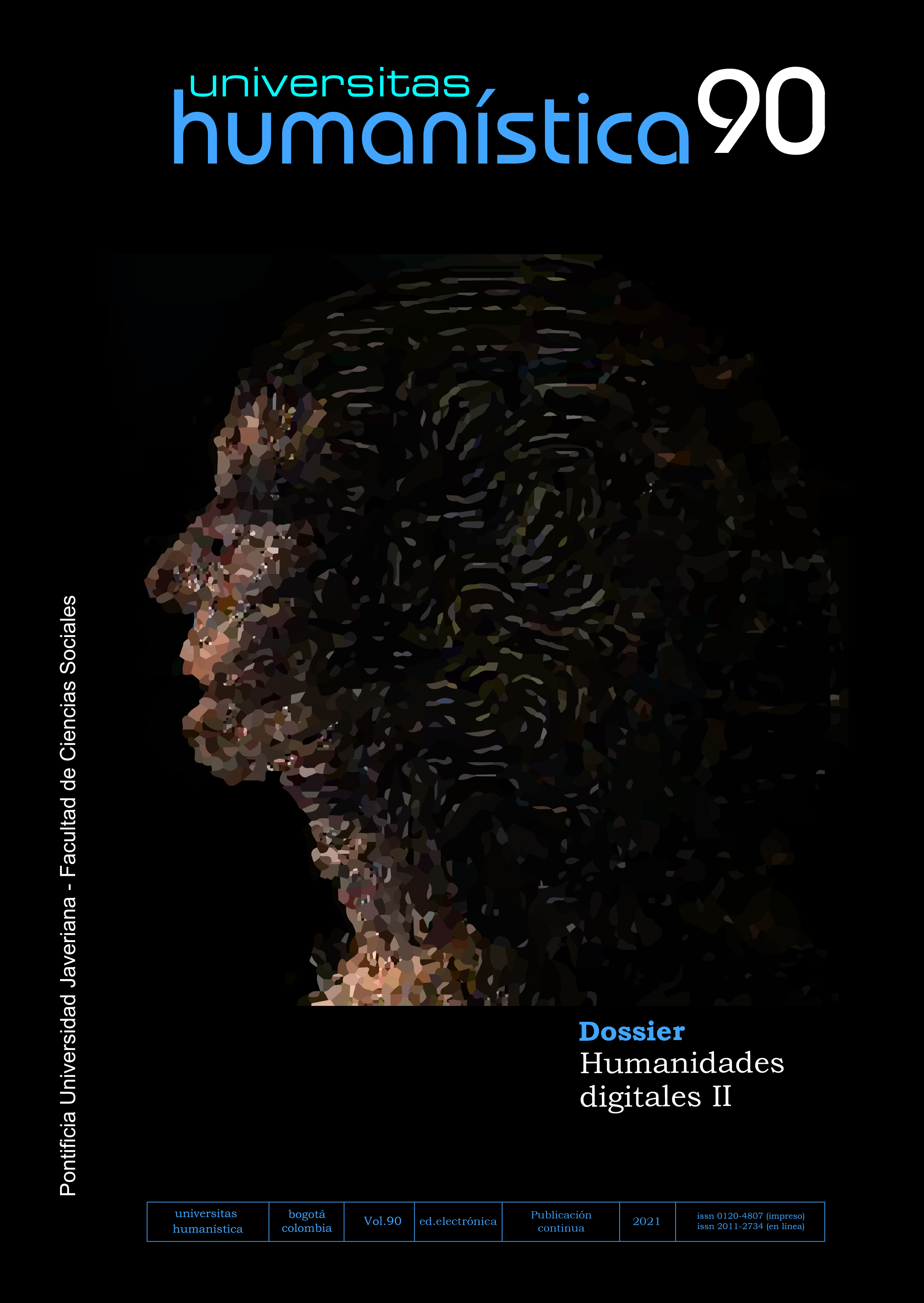Erving Goffman´s sociology of morality
##plugins.themes.bootstrap3.article.details##
The purpose of this article is to reconstruct the way in which the relationship between morality and social order is analyzed in Erving Goffman's social theory. We consider that the main contribution of his proposal is that, while recognizing the moral foundations on which every social order is based, it rejects a normative understanding about it. This alternative becomes plausible through the discovery of the interaction order problem made by the author. From this place, it is recognized that in an interaction it is not moral commitments that can guarantee order, but the effective communication and expression of them. Although Goffman was mainly concerned with the application of this perspective to the study of face-to-face phenomena, in this work we intend to show its scope and projections in the field of general sociological theory.
acuerdos de trabajo, normas morales, interacción, orden social, ritualesacordos de trabalho, regras morais, interação, ordem social, rituaiswork agreements, moral norms, interaction, social order, rituals
Archer, M. (1996). Culture and Agency. The Place of Culture in Social Theory. Cambridge University Press. https://doi.org/10.1017/CBO9780511557668
Boltanski, L. (2011). On Critique. Polity Press.
Branaman, A. (1997). Goffman Social Theory. En C. Lemert y A. Branaman (eds.), The Goffman Reader (pp. 9-41). Blackwell.
Burns, T. (2002). Erving Goffman. Routledge. https://doi.org/10.4324/9780203205501
Collins, R. (1980). Erving Goffman and the Development of the Modern Social Theory. En J. Ditton (ed.), The View from Goffman (pp. 170-208). The Macmillan Press. https://doi.org/10.1007/978-1-349-16268-0_7
Fine, G., y Manning, P. (2003). Erving Goffman. En G. Ritzer (ed.), The Blackwell Companion to Major Contemporary Social Theorists (pp. 34-62). Blackwell Publishing.
Garfinkel, H. (2006). Estudios en etnometodología. Anthropos.
Giddens, A. (1987). Erving Goffman as a Systematic Social Theorist. En, Social Theory and Modern Sociology (pp. 109-139). Stanford University Press.
Goffman, E. (1951). Symbols of Class Status. The British Journal of Sociology, 2(4), 294-304.
Goffman, E. (1952). On Cooling the Mark Out: Some Aspects of Adaptation to Failure. Psychiatry, 15(4), 451-463. https://doi.org/10.1080/00332747.1952.11022896
Goffman, E. (1963). Behavior in Public Places. Notes on the Social Organization of Gatherings. The Free Press.
Goffman, E. (1967a). Introduction. En, Interactional Ritual. Essays on Face-to-Face Behavior (pp. 1-3). Pantheon Books. https://doi.org/10.4324/9780203788387-1
Goffman, E. (1967b). Embarrassment and Social Organization. En, Interaction Ritual. Essays on Face-to-Face Behavior (pp. 97-112). Pinguin Boo. https://doi.org/10.4324/9780203788387-4
Goffman, E. (1967c). The Nature of Deference and Demeanor. En, Interaction Ritual. Essays on Face-to-Face Behavior (pp. 47-95). Pinguin Books. https://doi.org/10.4324/9780203788387-3
Goffman, E. (1967d). Alienation from Interaction. En, Interaction Ritual. Essays on Face-to-Face Behavior (pp. 113-136). Pinguin Books. https://doi.org/10.4324/9780203788387-5
Goffman, E. (1967e). Where the Action is. En, Interaction Ritual. Essays on Face-to-Face Behavior (pp. 149-270). Pinguin Books. https://doi.org/10.4324/9780203788387-7
Goffman, E. (1970). Sobre el trabajo de la cara. En, Ritual de la interacción (pp. 13-47). Editorial Tiempo Contemporáneo.
Goffman, E. (1971a). Encounters. Two studies in the sociology of interaction. Penguin Books.
Goffman, E. (1971b). Fun in Games. En, Encounters. Two Studies in the Sociology of Interaction (pp. 19-72). Penguin Books.
Goffman, E. (1971c). Role distance. En, Encounters. Two Studies in the Sociology of Interaction (pp. 73-134). Penguin Books, Middlesex.
Goffman, E. (1979). Gender Advertisements. Harper and Row.
Goffman, E. (1991a). El orden social y la interacción. En Y. Winkin (comp.), Los momentos y sus hombres (pp. 91-98). Paidós.
Goffman, E. (1991b). La ritualización de la feminidad. En Y. Winkin (comp.), Los momentos y sus hombres (pp. 135-168). Paidós.
Goffman, E. (1991c). El orden de la interacción. En Y. Winkin (comp.), Los momentos y sus hombres (pp. 169-205). Paidós.
Goffman, E. (1998). Estigma. La identidad deteriorada. Amorrortu editores.
Goffman, E. (2001). Internados. Ensayos sobre la situación social de los enfermos mentales. Amorrortu editores.
Goffman, E. (2004). La presentación de la persona en la vida cotidiana. Amorrortu.
Gonnet, J. P. (2020a). Orden social, interacción y sociedad en Luhmann. Perspectivas para una integración del conocimiento sociológico. Revista Sociología y Antropología, 10(1), 155-178. https://doi.org/10.1590/2238-38752019v1015
Gonnet, J. P. (2020b). ¿Por qué la interacción? Un análisis de los escritos tempranos de Erving Goffman. Revista Reflexiones-Costa Rica, 99(1), 1-20. https://doi.org/10.15517/rr.v99i1.35308
Hitlin, S. y Vaisey, S. (2010). Handbook of the Sociology of Morality (pp. 561-584). Springer.
Honneth, A. (2010). Reconocimiento y menosprecio. Sobre la fundamentación normativa de la teoría social. Katz Ediciones. https://doi.org/10.1007/978-1-4419-6896-8
Jacobsen, M. (2010). Goffman through the Looking Glass: From Classical to Contemporary Goffman. En M. Jacobsen (ed.), The Contemporary Goffman (pp. 1-50). Routledge. https://doi.org/10.4324/9780203861301
Joas, H., y Knobl, W. (2013). Interpretative Approaches: Symbolic Interactionism. En, Social Theory. Twenty Introductory Lectures (pp. 123-149). Cambridge University Press. https://doi.org/10.1017/CBO9781139878432.007
Luhmann, N. (2013). Interacción, organización, sociedad. Aplicaciones de la teoría de sistemas. En, La moral de la sociedad (pp. 197-213). Editorial Trotta.
Manning, P. (1992). Erving Goffman and modern sociology. Polity Press. https://doi.org/10.2307/2075701
Psathas, G. (1980). Early Goffman and the Analysis of Face-to-Face Interaction in Strategic Interaction. En J. Ditton (edit.), The View from Goffman (pp. 24-51). The Macmillan Press.
Rawls, A. (1987). The Interaction Order Sui Generis: Goffman´s Contribution to Social Theory. Sociological Theory, 5, 136-149. https://doi.org/10.2307/201935
Rives, A. (2020). Goffman y las situaciones sociales: algunas enseñanzas metodológicas. Revista Española de Sociología, 29(2), 285-300. https://doi.org/10.22325/fes/res.2020.16
Smith, G. (2006). Erving Goffman. Routledge. https://doi.org/10.4324/9780203002346
Treviño, J. (2003). Introduction: Erving Goffman and the Interaction Order. En J. Treviño (ed.), Goffman´s Legacy (pp. 1-49). Rowman and Littlefield.
Turner, J. (1990). Dramartugical Theory. Erving Goffman. En, The Structure of Sociological Theory (pp. 447-471). Wadsubur Publishing Company.
Winkin, Y. (1991). Erving Goffman: retrato del sociólogo joven. En Y. Winkin (ed.), Los momentos y sus hombres (pp. 13-85). Paidós.
Wolff, K. (2000). Sociologías de la vida cotidiana. Cátedra.

This work is licensed under a Creative Commons Attribution 4.0 International License.


